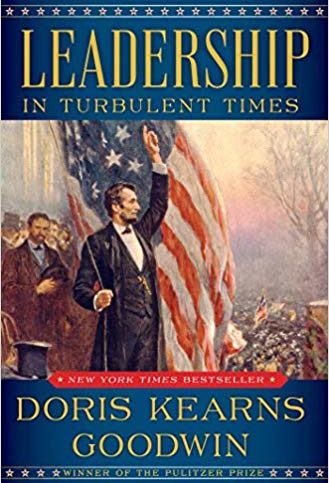Raising Your Game: From Influencing to Inspiring
Are your communication skills keeping up with your career progression?
As you rise through your organization, the purpose and the character of your presentations tends to shift. When you’re an individual contributor at the beginning of your career, your main task is to inform. You may need to update management on the status of a project, or give them information that they can use to factor in to their own thinking and decisions. Your principal currency is information.
As you ascend the ranks and hit middle management, you find yourself having to do more in cooperation with others, and you may increasingly be asked by more senior management to suggest solutions and advocate for a decision, so your principal task is to influence. The principal currency of this form of presentation is value, and the payoff is profit.
At some point, there is a good chance that you will be called to a third task: to inspire. It may be because you have reached a senior leadership position, or because circumstances call for enhanced effort and commitment, reassurance, or creative energy. For this highest form of speaking (indeed, at this level it’s not a presentation; it’s a speech), the only currency that works is not value but values, and the payoff is pride.
When Henry V spoke to his assembled knights and archers before the battle of Agincourt, he did not offer information. When Westmoreland wished that they had reinforcements from England, he did not say, “Men, even though we are outnumbered by the French, the greater range of our longbows will allow us to achieve fire superiority for 2 minutes before they close with us, which will allow us to degrade their fighting efficiency by 46%…” He also didn’t exhort them to fight hard because they would be able to profit from capturing French nobles and exchanging them for ransom. Instead, he appealed to values that he held dear and more importantly knew that they shared with him: honor, courage, and glory.
Values can change over time—honor, courage and glory may not be the most important values that your subordinates crave, but the feelings that values produce are timeless, primarily self-satisfaction, full engagement, and most importantly, pride.
The difference between value and values is the difference between extrinsic and intrinsic motivation, or the difference between a transaction that improves profit and a transformation that boosts pride.
Henry disdains extrinsic motivation in his speech:
By Jove, I am not covetous for gold, Nor care I who doth feed upon my cost; It yearns me not if men my garments wear; Such outward things dwell not in my desires.
He even offers payment to those who would choose value over values:
Rather proclaim it, Westmorland, through my host, That he which hath no stomach to this fight, Let him depart; his passport shall be made, And crowns for convoy put into his purse;
He then appeals to personal pride, which he knows will resonate with his listeners:
He that outlives this day, and comes safe home, Will stand a tip-toe when this day is nam’d, And rouse him at the name of Crispian. He that shall see this day, and live old age, Will yearly on the vigil feast his neighbours, And say “To-morrow is Saint Crispian.” Then will he strip his sleeve and show his scars, And say “These wounds I had on Crispin’s day.”
Even above personal pride is communal pride. Henry knows the power of appealing to a sense of belonging to something special, larger than one’s personal selfish desires:
We few, we happy few, we band of brothers; For he to-day that sheds his blood with me Shall be my brother; be he ne’er so vile, This day shall gentle his condition;
If you want to inspire, you must appeal to higher values than personal gain. WIFM (what’s in it for me?) doesn’t work for inspirational speeches, but WIFU (What’s in it for us?) does. If Kennedy had said, “let me tell you what your country can do for you,” would anyone have remembered his inaugural address?
In fact, injecting personal gain may insult your listeners, as attested to in the story related by Chip and Dan Heath in their book, Made To Stick. A marketer was testing messages to help sell a fire safety educational film to firefighters. He first asked fire units if they would like to review the film for their educational programs, and the replies were enthusiastically positive. Then, he asked them if they would prefer a popcorn popper or a set of steak knives for reviewing the film. The general response was “Do you think we’d use a fire safety program because of some #*$@! popcorn popper?!”[1]
Values don’t appeal to everyone. There will always be cynics who will sneer and roll their eyes. But values are more important than you might think. When you ask most people, they assume that others are more driven by personal gain, but they themselves are not. We tend to overestimate the extent to which others are driven by personal gain.[2]
Do you really need to raise your game? The ability to skillfully inform and influence others got you this far, so why mess with what got you here?
That would be the easy way, but first consider this. According to Gallup, only 32% of American workers are engaged; worldwide, the number is only 13%![3] Those sad numbers are clear evidence that there is a leadership drought in the world today. We have plenty of bosses today, but not enough leaders. Bosses can always squeak by through coercion and “coin-operated” compliance, but it takes a leader to engage and inspire.
You can add to the problem, or you can contribute to the solution. It’s up to you.
[1] Made to Stick, by Chip Heath and Dan Heath, p. 188.
[2] Perspective Taking: Misstepping into Others’ Shoes, Nicholas Epley and Eugene M. Caruso.
[3] http://www.gallup.com/businessjournal/188033/worldwide-employee-engagement-crisis.aspx





